Stretching Minds Through Short Stories - The Veldt Summary

Beyond Entertainment
Wednesday is my favorite day of the week, well, at least at school. It's the day I get to move beyond the ever changing routine and actually have a discussion with the kids that they want to have. I've decided to start this series as a challenge to all of the people who've ever told me that American children no longer possess imaginations, that they have no focus beyond their video games, or that they just don't have the drive they used to have academically. You are wrong, and my kids will prove it.

Children and Voices
It's important to remember that everything we do influences the minds of the children around us. The things we wear, the things we say, and more importantly the opinions that we sometimes pass down without even stopping to really think about what we say. They learn from our every word, the words we don't say, the shrug of our shoulders, the spontaneous smiles, and the smiles that are withheld. Book clubs encourage discussion, friendly debate, and critical thinking. They are not a venue for showcasing our superior minds; they are meant to "open" up the collective minds of the group itself, allow for imagination, and most importantly give the children a voice to interpret and apply fine literature to their own lives, to see that they've something of their own experiences to apply in every situation, and they do just that......... proudly and loudly.
Ray Bradbury
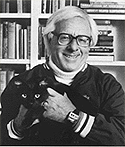
Ray Bradbury is one of the most popular American writers of our time. Over the years his writing has not only been embraced by literary circles, but has served to inspire filmmakers and television executives as well. His writing is timeless, and appreciation for his work has no boundaries. He appeals to young audiences as well as the more mature; he changes the way that people think, but more than that, he makes them think.
The Veldt is one of Bradbury's short stories, and was originally published in the Saturday Evening Post under the title, The World the Children Made. It was later republished in Bradbury's anthology The Illustrated Man.

Change In America
The 1950s brought many changes to America; America was changing, technology was changing, and the fear that families too would change became a worry for many. Technology was feared, not for the advances being made, but for the way they might affect the family as a whole. The world of television was invading the homes of American families, and American families were both enthralled by its appearance, and yet unsure how this new family member would affect the family unit as it settled in and made itself at home. Bradbury wrote The Veldt in response to this fear, but he takes it one step further. Bradbury creates a machine that purposely allows that separation and detachment, a machine that has the capability of destroying the family unit, and it does.

The Veldt/ A Summary
George and Lydia have it all, and that's exactly what they've given their children. The couple have purchased a Happy Life Home, and they've purchased it for $30,000.00. Just think; it cooks your food........ no more cooking; it does your laundry, and it dresses you. Breakfast, lunch, dinner......... all you have to do is sit at the table and your every wish is granted. You are washed and bathed, massaged and coddled, rocked to sleep, and transported through your home without having to move a muscle, all of this luxury and yet, they've even upgraded. At half of the cost of the house, a mere $15,000.00, they've added an enormous nursery. Nothings too good for their children, or is it?
The nursery can be anything the kids desire. It can be the beach or a fairy tale. They can travel anywhere they'd like, experience anything the world has to offer, and do it all from the enormous addition that was made to their home. The room comes complete with wind, hot sun, and yes, even "odorphonics." You'd never know the places weren't real, or are they real?
The Dreams of Children
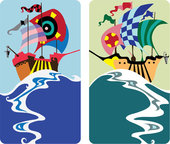


The story opens with Lydia drawing her husband into a conversation about their children. She is visibly worried that they are spending far too much time in the nursery, that the places they're visiting aren't suitable, and that the fact they they have chosen the African Veldt as their escape of choice is alarming.
She wants her husband to call the psychologist, but she wants him to call the psychologist for the house. The "happy home" that they talk to, the home that talks back, that they thank for its every service; the home that was supposed to make their lives perfect, but it isn't perfect and she's crying. She wants to leave; she feels as if she's become unimportant, that she's not needed. She's no longer the caregiver, no longer a wife, no longer a mother, and she isn't wrong.
The children come home and they want their nursery; their parents talk about shutting it down, and they react as if a cherished family member has passed away. They throw tantrums, they threaten, and then they shift gears just quickly enough that they get their way. They know exactly how to manipulate; they know that their parents will give them anything to keep the peace, and they know this because their parents have forgotten how to be parents. Their attachment is not to the ones who game them life, but rather the technology that has taken care of them. The house is their parents; it's the only caregiver they've ever known, and because of their love and loyalty to that caregiver they are willing to do anything they have to in order to save its life.
Where did the veldt come from, and why is it their preferred destination? What happened to the fairy tales, the trips to Wonderland, the cow jumping over the moon, and visions of Pegasus flying in the sky that was a ceiling. Where had the fairy castles, fireworks, and sounds of angels gone? Why the veldt? Why the sounds of roaring lions, the heat from the sun, the smell of blood, and why the screams. Who is screaming?

Exasperated and frightened the parents call on the psychologist. He too is concerned, and explains what the room was intended for:
"One of the original uses of these nurseries was so that we could study the patterns left on the walls by the child's mind, study at our leisure, and help the child. In this case, however, the room has become a channel toward destructive thoughts instead of a release from them."
He explains that the children are emotionally "in trouble," that the children have become more than the spoiled children he'd originally become acquainted with, and that for some reason they've become angry, or let down in some way. George admits that punishments for bad behavior have been to deny the children of things that are second nature to them, and is told that these things that have been taken away are the things that have replaced both he and his wife in the children's affection. George had once been a Santa, and now he was a Scrooge, and we all know that kids don't like Scrooge.
His advice is to shut off the house completely, to put the children in therapy, and to get as far away as possible from the life they've been living, but can they? Can they get away? Can they say no and really mean it?
That is where I'll leave the summary.......... look the story up online; it's a short one, and here is what my eighth graders had to say about the whole thing............
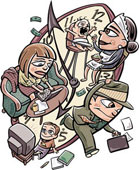
Wants and Needs
The first part of the discussion was pretty basic, but it was also filled with surprises. I almost wanted to make a list of the things that came up, but I don't think that it would have the same effect. I would rather invite the parents of these eleven children in for an instant replay. I think they'd be touched, but that they'd also leave feeling more than a little guilty. It was an eye opener.
For starters, your kids know the difference between wants and needs; they love technology, but they love something else more, and that would be you. I'll start with cell phones; the kids love to own them, but they want you to lose yours more than they love the ones that they carry. There wasn't one child in this group who didn't dread the call from work on the weekend that would take their parents away; they hate the accessibility that takes you away from them. They look at your phones as intruders, and they are almost jealous of them to a certain point. The girls talked about waiting for shopping trips with their mothers, and then never having their mother's complete attention because they spent their time on the phone; at that point they wished they'd just gone with their friends. This is where we lose them, the times that we're with them, but we're not; the times that are supposed to be planned and special, but that lose the "special." They want that undivided attention, and they need it.
Most all of these kids come from two income families; they appreciate that their parents work to give them the things they need, but they don't like the time taken away that gives them what they want. None of them claimed to be immune to wants, but each and every one of them admitted to having more than they need. They all want to spend more time with their parents, and they want it more than they want the video game or the new clothes; they want the time, not the overtime.
The boys talked a lot about baseball games, and they glowed over dad showing up for the last few innings, but they also had no trouble mentioning the missed home run. All of them, both the girls and the boys wished there were more family dinners, resent the times they're shooed out of the room because everyone is too busy, and claim that each of their parents has unknowingly used the television, gaming systems, and the computer as a babysitter. Don't get me wrong, there was no parent bashing in this group; it was all just honesty; their feelings and their honesty.

"Forget them, Wendy. Forget them all. Come with me where you'll never, never have to worry about grown up things again. "
One of the boys; one of my quiet ones, made one of the most thought provoking analogies of the entire discussion, one of the best I've ever heard, maybe because I'd never thought of it myself. We won't talk about the fact that I've used this story probably six times in the last eight years, that it was required reading for me while in high school, or that I've had the pleasure of working with some really brilliant kids in the past; he wowed me! As all of the other kids were challenging each other over the deep meaning of Africa, the smell of blood, bloody wallets, and comparing Bradbury's futuristic vision of the nursery to the present day IMAX Theatre and playing games on Wii; he completely changed the course of the discussion with this simple question, "Do you think the author had a hidden meaning in using the characters of Peter and Wendy in this story? They are Peter Pan and Wendy you know?"
Well, I didn't know, and I still don't, but they had an unreal debate about the lost boys, and the desire to stay children, and the fact that technology, going home to empty houses, and all of the chaos of everyone coming home and just trying to get it all done has taken away their ability to just be kids. They talked about wanting to go fishing, and to be able to do something after school without it taking major planning; they talked about just wanting to be able to go outside, and the fact that most of them can't because they need to go home. They don't want to, but they need to, and they do understand, but they also grasped this understanding that Peter and Wendy didn't know love, and how it made them selfish, and they likened this understanding to Peter Pan's not understanding what a mother is. Peter Pan thought nothing of his actions because he didn't know better. He couldn't understand Wendy's attachment and love for her family because he'd never had one, and that lack of knowledge made him their perfect example of unknowing selfishness.

What every child needs and wants...........
The end of our time together brought even more insights to the way our children think, and don't ever misguide yourself into believing that they don't; they think, and they think deeply. Our discussion ended with thoughts of what would happen had a child never known love, a child's never having been nurtured, and the fact that love grows through a sense of touch, the feeling of security, and what you see in the eyes of the people who love you. My readers conceded that Peter and Wendy had never experienced the warmth of human touch, or that they had forgotten it. They described the children's lack of emotion and detachment from their parents as inevitable; the children were cold because they'd never felt warmth; they were detached because they'd never felt connected, and they were unable to really feel love because they didn't know what it felt like. The children felt nothing, nothing for their parents, and nothing for the things around them; they were empty inside, and it wasn't their fault. All they knew was the house, and to them the house was the one living thing they had to come home to every day. It took care of what they needed, and they didn't want it to die. One of the girls likened this to a boy she'd had a crush on; she said he was a jerk, but he was a boyfriend, and a jerky boyfriend was better than not having one at all......... so in her eyes, the house was better than nothing. I'll give her that, but I will be challenging her jerky boyfriend theory in a smaller setting.
That is where I'll end. The rest of our discussion was all about Bradbury's conclusion to the story, and I want you to read it. Revealing the end would be defeating the purpose, and it's a killer ending.


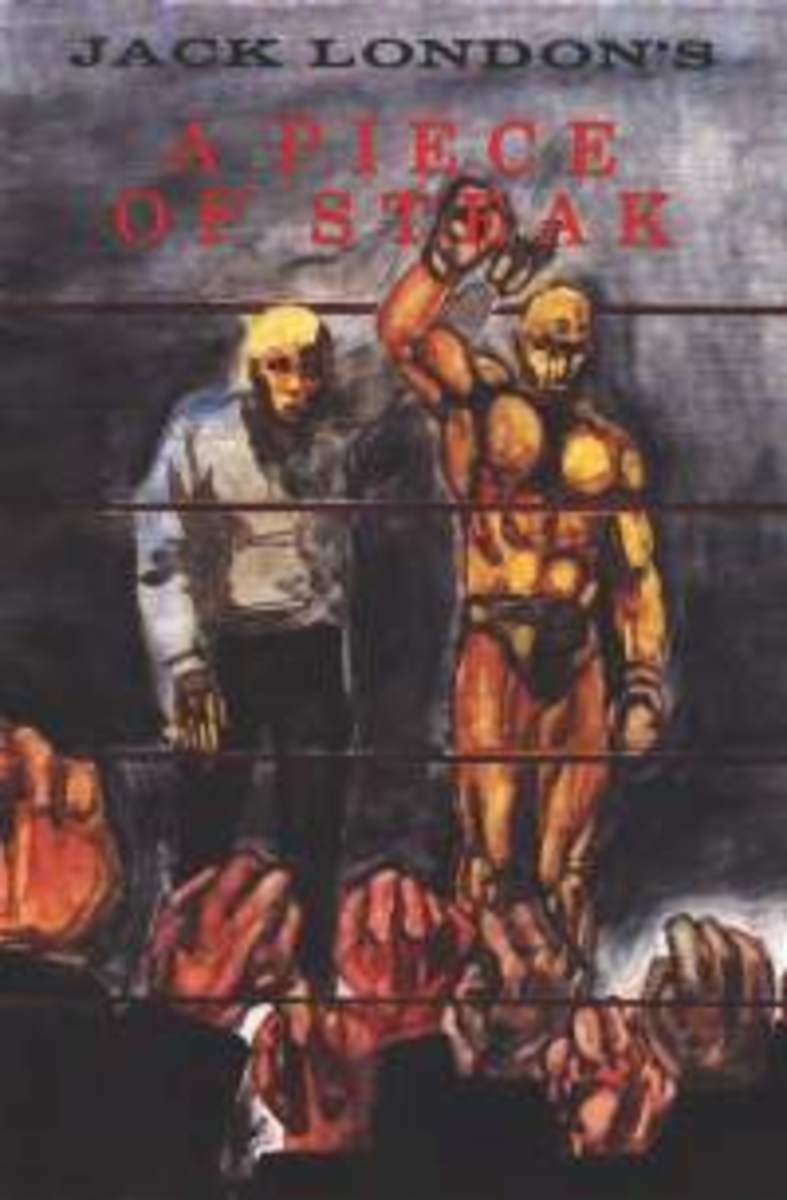
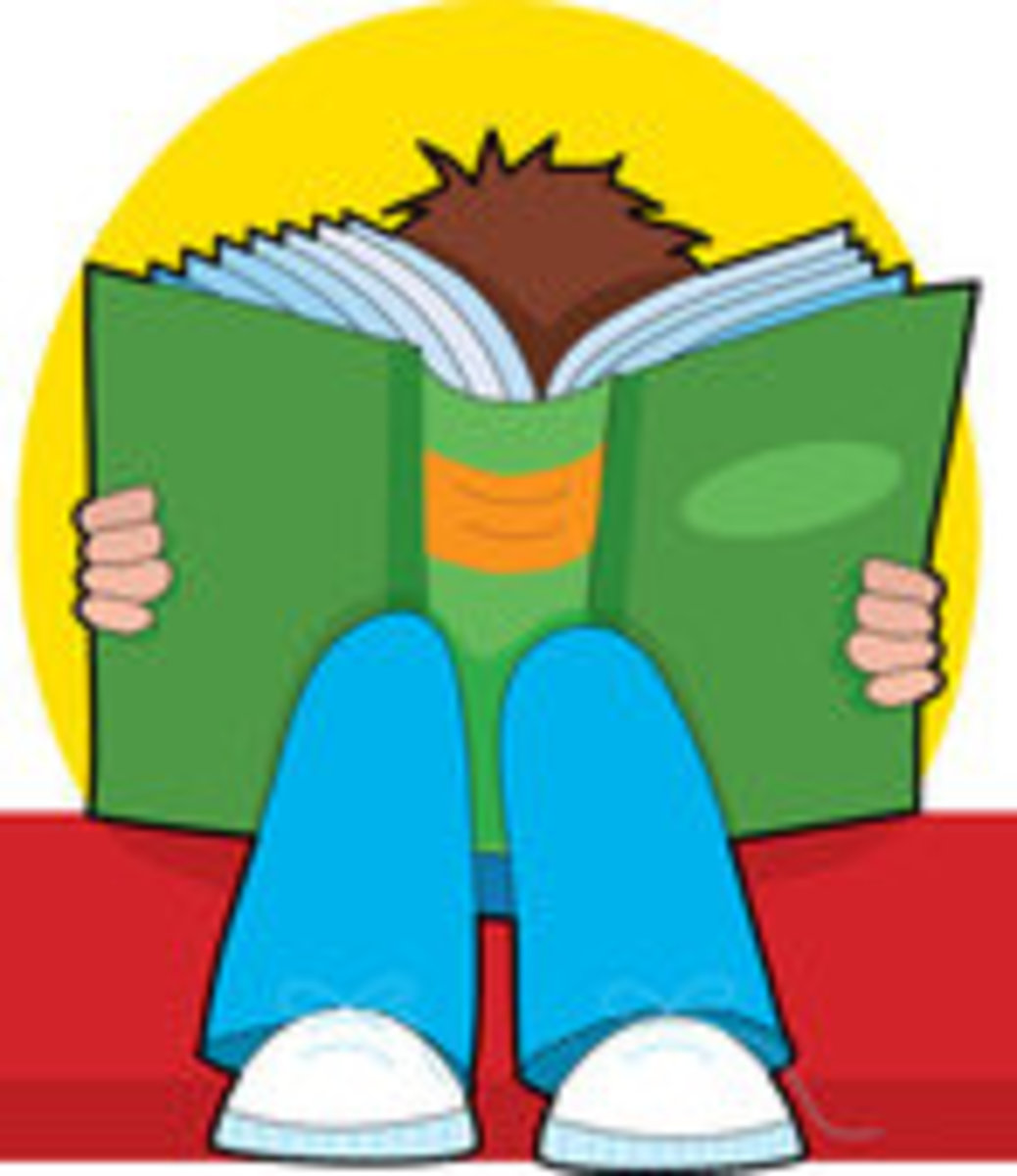
![Education - Solution 3 - Revamp How Education is Organized in America. [33]](https://usercontent2.hubstatic.com/4346237_f120.jpg)
